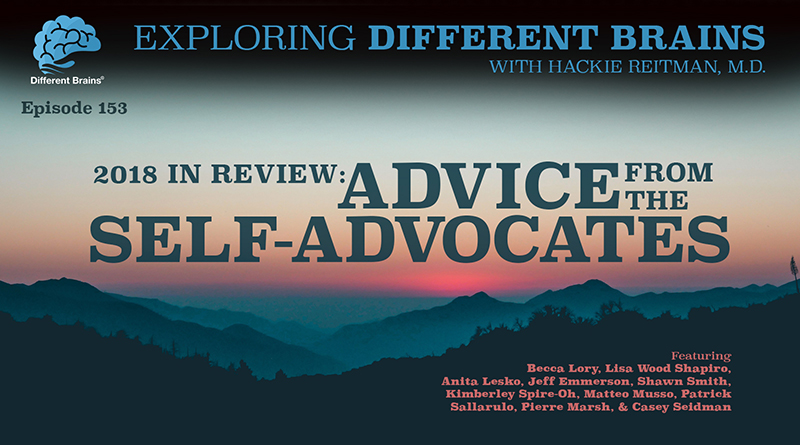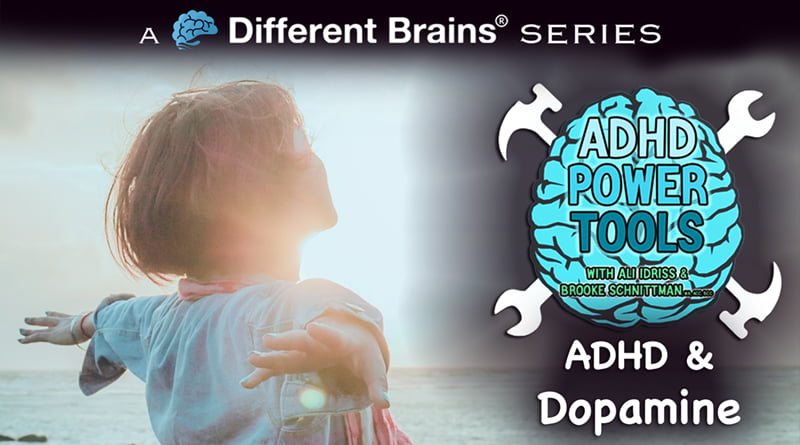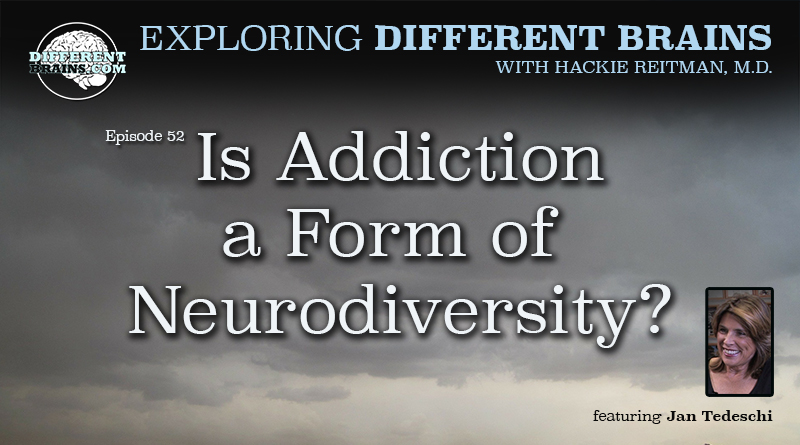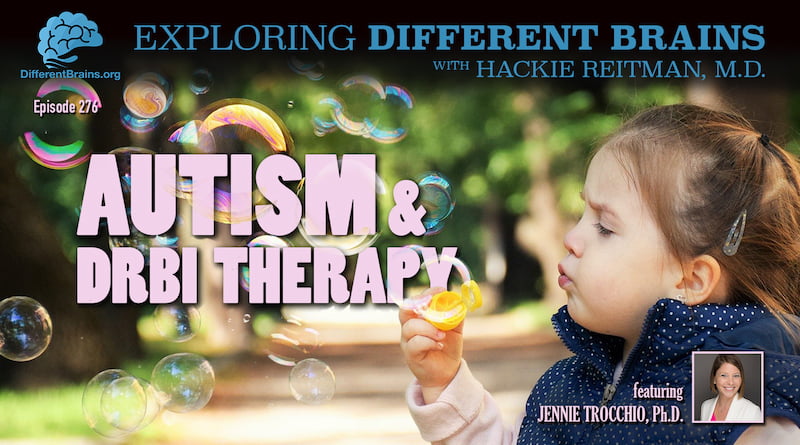
2018 in Review: Advice From The Self-Advocates | EDB 153
Words of wisdom from neurodiverse self-advocates
In this first of two “2018 in Review” episodes, we are going to hear from a handful of the inspiring self-advocates we have featured: Becca Lory (autism self-advocate, consultant, speaker, writer, Different Brains board member, and co-host of our podcast Spectrumly Speaking), Casey Seidman (ADHD self-advocate, Assistant Director of Graduate Recruitment for Nova Southeastern University’s H. Wayne Huizenga School of Business), Lisa Wood Shapiro (dyslexia self-advocate, author and contributor to Vogue, Wired, Outside Magazine, Real Simple, and The Hiking Project), Pierre Marsh (Senior Mediator specialist in Employment and Discrimination at Marsh Mediation Practice), Jeff Emmerson (depression self-advocate, co-author of the book Beyond ADHD, and speaker for mental health, suicide prevention, anxiety, depression and ADHD), Patrick Sallarulo (Down syndrome self-advocate, Special Olympics athlete and co-founder of Sallarulo’s Race of Champions), Kimberley Spire-Oh (a private attorney for Special Education and Disability Law, a special education advocate, and Different Brains board member), Anita Lesko (internationally recognized autism self-advocate, member of Autism Society of America’s Panel of Autistic Advisors, and author of Temple Grandin: The Stories I Tell My Friends), Shawn Smith (ADHD self-advocate, successful entrepreneur, a neurodiversity advocate and consultant, and founder of Don’t Dis-my-Ability), and Matteo Musso (an author who also happens to be a nonverbal teen on the autism spectrum).
For more about the guests featured and their full interviews:
Becca Lory: BeccaLory.com her full interview can be seen here!
Casey Seidman: linkedin.com/in/caseyseidman/ his full interview can be seen here!
Lisa Wood Shapiro: LisaWoodShapiro.com her full interview can be seen here!
Pierre Marsh: linkedin.com/in/pierre-marsh his full interview can be seen here!
Jeff Emmerson: JeffEmmerson.com his full interview can be seen here!
Patrick Sallarulo: SallarulosRaceForChampions.org his full interview can be seen here!
Kimberley Spire-Oh: KSOLawFirm.com her full interview can be seen here!
Anita Lesko: AnitaLesko.com her full interview can be seen here!
Shawn Smith: ddmacs.ca his full interview can be seen here!
Matteo Musso: MatteoMusso.com his full interview can be seen here!
To listen or download the podcast version of this episode, see the embedded player below.
Or look for us on your favorite podcast provider:
Apple Podcasts | Stitcher | SoundCloud
TRANSCRIPT
[expand title=”Click here to view full transcript”]HACKIE REITMAN, M.D. (HR): Hi, I’m Dr. Hackie Reitman. Welcome to this special two-part episode covering just some of the highlights from Exploring Different Brains in 2018. In this first part, we are going to hear from a handful of the inspiring self-advocates whom we have featured.
Becca Lory
HR:…For any young woman, or any woman, who has just been diagnosed with autism, what would you advise her?
BL:Read! “Read” is my favorite thing to advise, and not everyone is a reader, and that’s why I was so excited to do the podcast because sometimes you need it a different medium, so what I say is go find your tribe. That’s the best way, and I know I’ll get flak for saying the word “tribe.” It’s not cultural appropriation; I’m sorry if it offended you, but go look for us; go find us because we’re writing. There others of you out there writing, speaking, doing podcasts, being available online, and you’re in the online groups. Most of our community functions online. If you’re looking for the autism community, get on your computer; we’re there, and that’s how we all communicate with each other, so get online; get some books; look for some recommendations; you can start on my website if you want to. I have some resources on there; I certainly have my writing and reading on there, but I always say to people start there. Read somebody else’s experience because the minute you start to understand that you’re no longer alone and it’s not just you and you’re not the broken one, suddenly there’s hope, and there’s the ability to understand that things can change, and it doesn’t have to be the way it’s been, but until you hear other women’s voices to know you’re not the only voice, it’s kind of hard to push past, so get out there and do some reading. You don’t have to get involved. You can get online and just, you know, go around and read; you don’t have to participate right away, but you’ll feel less alone in the journey for sure.
Casey Seidman
HR:What tips do you have for someone, like someone in our Different Brains audience who might have Dyslexia or ADHD, or family members, what’s the biggest tip you might be able to give them?
CS:Be very patient. Be very, very patient because when you’re younger and you have ADHD or some kind of learning disability, things tend to come at first slowly, so you might learn something you might teach a child or teach a nephew or teach a niece something and they may not get it right away, but it might click in two weeks, so my advice is to be patient, and if you’re that person with ADHD or a learning disability, be patient with yourself. It will come to you. Not only will it come to you, you’ll learn how to take it and use it as an advantage because a learning disability, or a different brain as they would say, is not a disadvantage. On the contrary, it’s something of an advantage. You have to think of it like Bruce Lee: Bruce Lee used to say, “Be like water.” Well, that lets you be like water, and that lets you take a look at whatever your disadvantages and turn that around to your advantage, and that’s my philosophy and that’s my advice to everybody.
Lisa Wood Shapiro
HR: What tips would you have for people in our audience whether they’re dyslexic or not on becoming a writer and trying to make a living at it.
LWS: You have to have be egoless you have to be persistent anyone that’s starting out to write I would recommend Ryan holidays book the obstacles the way it is a fun book to actually it’s a great audible if you’re riding in the car or something and the book is really about some of the great quotes of stoicism like Seneca, a lot of his quotes sound like they came from someone yesterday. One of the things is if this for anyone trying to be a writer not just dyslexic right you’re trying to do something that you’re going to get rejected you’re going to have to have a vision and afford to not have an ego about that and to see yourself as just a persistent person doing work and action action action. So I would say anyone that’s trying to be a writer to kind of seek out that kind of book where it really talks about its action that will get it done so you know when you first start writing you might have this great pitch and you send it to the one person you know that happens to be an editor or a writer at a magazine you want to be in. You might not hear from them and you’ll get a no and that might be three weeks of your life and I would say you should be pitching constantly and assume you’ll get rejected and if you’re giving someone a first look tell them, you know a few days goodbye you don’t hear go catch someone else if you think it’s a good idea you’ll usually land it. Also, so anyway so I just wanted to say a couple things. Your loyalty should be to the work.
Pierre Marsh
PM:…For example, if I give you an analogy, a tanker would be a massive ship, needs a huge rudder to turn it, to direct it, that’s humanity. It needs a huge rudder to start turning that tanker. It takes about 2 or 3 miles to turn the tanker, but guess what’s on the big rudder, a very small rudder, which turns in the opposite direction. Without having that capacity to turn in the opposite direction, the big rudder won’t be able to turn the ship out of danger. And I believe that’s where neurodivergence is. It sits on the edges, the fringes, of humanity. Think about all the entrepreneurs, think about all the people in Oxford and Cambridge for example, which are neurodiverse. This is something like 40%. People with Asperger’s, they’re focused they can’t stop doing, applying themselves to a particular problem. Think about the odds, philosophy, all of this is where neurodivergence sits. Yes, the sequential people who run the administrations and the offices, all these types of things are very important. But they all work well in conjunction with all that creativity.
Jeff Emmerson
HR: Now, here at Different Brains, what we try to do is to learn and teach positive tools for people to use. Now, someone who’s watching this who might be going through a depression or has other stuff going on, what advice would you give them?
JE: Obviously it’s case by case. On Twitter, I certainly try to say that I don’t have a cookie cutter answer of course, but what I would say is that for me, because I’ve been there, the worst moments and the worst struggles taught me, ironically, the greatest strength is resilience, almost like baptism by fire. They taught me to; they forced me. You’re either going to go all in and figure this stuff out, or else it’s obviously a much darker choice. I chose the former, fortunately. I would say number 1: be, and again I can only offer this from the heart, be gentle on yourself no matter what’s going on around you; it’s a huge thing, I think. I would always get into the racing, high expectation, high anxiety mindset, and self sabotage, in hindsight. I would say you’re not alone definitely in this stuff. You can go, remember I was 35 at the time, age, regardless of if I was 70 or 12 or whatever, you can overcome; you can change the future. For now, be gentle on yourself. Don’t rush it. I’ll finish with this: Like my wife said, it’s ok to wave the white flag and allow someone else to help you. Again, the best thing I could have done, and that’s why I’m here on this mission today.
Kimberley Spire-Oh
HR: …What advice would you have for someone out there who has epilepsy, who’s a female and is thinking of starting a family?
KS: I would advise them to seek out a geneticist and get information about their condition and their family history just so they know what risks are involved. I encourage them to look into the AED registry because I think that it’s world renowned as far as the information that they can provide but they need to know that you can do it, you can have healthy children. There are certain things that I had to be taught as far as once my son arrived people with seizures have to be careful about using changing tables because if you set your child down and then you have a seizure nobody’s going to be able to keep the baby on the table and the child is at risk. So I had to learn to bring blankets that I could lie him down on the floor or on you know a low settings so that I didn’t have that risk when you’re a new parent you are not getting enough sleep and lack of sleep can be a risk factor for epilepsy. So you don’t you know you’re more at risk to have seizures while you’re going through those early stages of having an infant. So being aware of that and trying to do a lot of self-care and get as much rest as you can is another thing, but you can do it just reach out for the resources and information that you need to do it successfully.
Anita Lesko
HR: I’d like to touch on something that often doesn’t get discussed with people on the spectrum which is: I want you to give some advice from your vantage point, your unique perspective, on relationships. Someone who’s in a relationship with someone on the spectrum.
AL: My husband and I talked. He’s autistic. I think our most positive aspect of our relationship is our ability to communicate. Now doesn’t that sound funny for two people on the autism spectrum who allegedly can’t communicate? But he and I, one of our hobbies with each other is sitting and talking with each other for hours and hours. On weekends, especially. Even if it’s hot out, we’ll jack up the air conditioner and build a fire in the fireplace, and then just sit there and talk for hours, like on the couch, my legs will be over his lap, and we’ll sit there holding hands and talking, talking, talking. We do things together all the time. We both love to cook, and so we rarely will go out to dinner. We always eat at home and make it from scratch. So we do that together. You have to find somebody that you can talk to and be friends with first. Because there isn’t going to be any kind of long lasting relationship if we can’t be friends with that person and have them think to get along together and share common interests together and just be able to sit and talk to each other. That’s what we think is a very, very strong component of the success of our marriage.
Patrick Sallarulo
HR: I’m going to be speaking down in Washington D.C. at a big event and what might you say to inspire other people to somebody your age to encourage them?
PS: I tell them be honest.
HR: Be honest is the key.
PS: Think.
HR:Use your brain and think.
Shawn Smith
SS: You know, I’ll bring it back to “No one ever said being awesome would be easy.” You know, I know that I’m not for everybody and everybody’s not for me. We often feel like, you know, validation comes from people liking us and being surrounded by people. But I know now as I mature that that’s not what it’s about. It’s about being surrounded by the right people. And if people don’t accept you for who you are, they’re not friends. Find those people in your life that when you think of them, the value they add to your life just automatically comes into your mind. Those are people who are your friends. If you hesitate for even a second, not a friend. They’re an acquaintance. Find those people that add value to your life and who you are as a person. Surround yourself with them and be that person for them as well, and that’s where happiness will come from. It comes from within. You’re not gonna find it by trying to gain acceptance from other people because that means you’re trying to be something or somebody that you’re not.
Matteo Musso
MM: [Communicated through letter board] Well, one of my most fun and pertinent sayings is, “I am autistic for so many reasons, but one of the biggest is to open the minds of society and help us all reexamine our priorities.”
[/expand]



